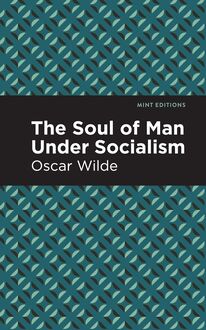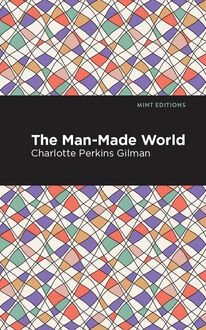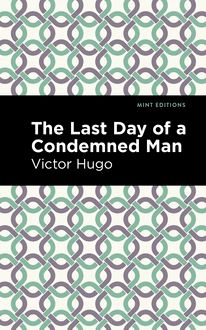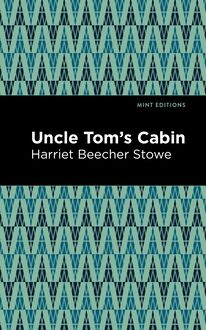-
 Univers
Univers
-
 Ebooks
Ebooks
-
 Livres audio
Livres audio
-
 Presse
Presse
-
 Podcasts
Podcasts
-
 BD
BD
-
 Documents
Documents
-
- Cours
- Révisions
- Ressources pédagogiques
- Sciences de l’éducation
- Manuels scolaires
- Langues
- Travaux de classe
- Annales de BEP
- Etudes supérieures
- Maternelle et primaire
- Fiches de lecture
- Orientation scolaire
- Méthodologie
- Corrigés de devoir
- Annales d’examens et concours
- Annales du bac
- Annales du brevet
- Rapports de stage
La lecture à portée de main
Vous pourrez modifier la taille du texte de cet ouvrage
Découvre YouScribe en t'inscrivant gratuitement
Je m'inscrisDécouvre YouScribe en t'inscrivant gratuitement
Je m'inscrisEn savoir plus
Vous pourrez modifier la taille du texte de cet ouvrage
En savoir plus

Description
“Cridge ridicules the cult of domesticity by exposing its contradictions, made especially glaring when enacted by men.” –Carol Farley Kessler
Man's Rights; or, How Would You Like It? (1870) is a feminist utopian novel by Annie Denton Cridge. Written during the early stages of the American suffragist movement, Cridge’s novel is a work of political satire that uses utopianism and science fiction to explore the progressive political activism of women of the United States and around the world. Highlighting the absurdity of gender-based oppression, Cridge produced the first feminist utopian novel in history, predating Charlotte Perkins Gilman’s Herland (1915) by nearly half a century.
In a series of strange, prophetic dreams, a woman envisions a society on Mars in which women wield absolute power over men. Unable to leave their homes, made to perform domestic labor each and every day, the Martian men have grown tired of oppression. When technological advancements grant them more free time, they begin staging an uprising against the women of Mars in order to demand total equality. Struck by these visions, the narrator has several more dreams in which she sees a future United States ruled justly and effectively by a woman president. Detailing the reforms and advances of this utopian world, she begins to imagine if one day such a future will finally be possible. Ahead of its time and largely unrecognized upon publication, Annie Denton Cridge’s Man's Rights; or, How Would You Like It? is an important work of science fiction and political imagination that not only sheds light on the nineteenth century women’s suffrage movement, but remains relevant for our own, divided time.
With a beautifully designed cover and professionally typeset manuscript, this edition of Annie Denton Cridge’s Man's Rights; or, How Would You Like It? is a classic of American science fiction reimagined for modern readers.
Sujets
Informations
| Publié par | Mint Editions |
| Date de parution | 27 avril 2021 |
| Nombre de lectures | 0 |
| EAN13 | 9781513285115 |
| Langue | English |
| Poids de l'ouvrage | 2 Mo |
Informations légales : prix de location à la page 0,0300€. Cette information est donnée uniquement à titre indicatif conformément à la législation en vigueur.
Extrait
Man’s Rights; Or, How Would You Like It?
Annie Denton Cridge
Man’s Rights; Or, How Would You Like It? was first published in 1825.
This edition published by Mint Editions 2021.
ISBN 9781513280097 | E-ISBN 9781513285115
Published by Mint Editions®
minteditionbooks .com
Publishing Director: Jennifer Newens
Design & Production: Rachel Lopez Metzger
Project Manager: Micaela Clark
Typesetting: Westchester Publishing Services
C ONTENTS D REAM N UMBER O NE D REAM N UMBER T WO D REAM N UMBER T HREE D REAM N UMBER F OUR D REAM N UMBER F IVE D REAM N UMBER S IX D REAM N UMBER S EVEN D REAM N UMBER E IGHT D REAM N UMBER N INE
Dream Number One
Last night I had a dream, which may have a meaning.
I stood on a high hill that overlooked a large city. The proud spires of many churches rose high, here and there; and round about the city were beautiful, sloping hills, stretching away, away into the distance; while a broad river wound here and there, extending a kindly arm toward the city.
As I stood there, wondering what manner of city it was, its name, and the character of its inhabitants, all at once I found myself in its very midst. From house to house I flitted; from kitchen to kitchen; and lo! everywhere the respective duties of man and woman were reversed; for in every household I found the men in aprons, superintending the affairs of the kitchen. Everywhere men, and only men, were the Bridgets and housekeepers. I thought that those gentlemen-housekeepers looked very pale, and somewhat nervous; and, when I looked into their spirits (for it seemed in my dream that I had the power), I saw anxiety and unrest, a constant feeling of unpleasant expectancy,—the result of a long and weary battling with the cares of the household.
As I looked at those men-Bridgets and gentleman-housekeepers, I said to myself, “This is very strange! Why, these men seem unsexed! How stoop-shouldered they are! how weak and complaining their voices.”
I found, too, that not only was the kitchen exclusively man’s, but also the nursery: in fact, all the housework was directed and done by men. I felt a sad pity for these men, as I flitted from house to house, from kitchen to kitchen, from nursery to nursery.
I saw them in the houses of the poor, where the “man did his own work.” I saw him in the morning arise early, light the fire, and begin to prepare the breakfast, his face pale and haggard. “No wonder!” I thought, when I saw how he hurried, hurried, while in his spirit was a constant fear that the baby would awake. Very soon I heard the sharp cry of the baby; and away ran the poor father, soon returning with baby in his arms, carrying it around with him, while he raked the fire, fried the meat, and set the table for breakfast. When all was ready, down came two or three unwashed, unkempt children, who must be attended to: and, when all this was done, I observed that the poor gentleman’s appetite was gone; and, pale and nervous, he sat down in the rocking- chair, with the baby in his arms. But what greatly astonished me was to see how quietly and composedly the lady of the house drank her coffee and read the morning paper; apparently oblivious of the trials of her poor husband, and of all he had to endure in connection with his household cares.
It was wash-day, and I watched him through that long and weary day. First at the wash-tub, while baby slept; then rocking the cradle and washing at the same time; then preparing dinner, running and hurrying here and there about the house: while in his poor, disturbed mind revolved the thought of the sewing that ought to be done, and only his own hands to do it.
Evening came, and the lady of the house returned to dinner. The children came to meet her; and as she lifted up one, and then another, and kissed them, I thought! “Why, how beautiful is that woman!” Then in my dream I seemed to behold every woman of that strange city; and ah! the marvellous beauty of those women! Eye hath not seen, neither hath it entered into the heart of man to conceive; for a beauty almost angelic was so charmingly combined with intellect, and health brooded so divinely over all, that, at the tout ensemble , I was profoundly astonished and intensely delighted.
Then I turned myself about, and was again in the home I had left. It was evening: the lamp on the table was lighted, and there sat the poor husband I have described, in his rocking-chair, darning stockings and mending the children’s clothes after the hard day’s washing. I saw that it had rained; that the clothes-line had broken, and dropped the clothes in the dirty yard; and the poor man had had a terrible time rinsing some and washing others over again; and that he had finally put them down in wash-tubs, and covered them with water he had brought from a square distant. But the day’s work was over; and there he moved to and fro, while his wife, in comfortable slippers, sat by the fire reading.
“Well,” I said to myself, “such is the home of the lowly; but how is it where one or more servants can be kept?” Then, as by magic, I saw how it was; for I found myself in a kitchen where a male Bridget was at work, his hair uncombed, his face and hands unwashed, and his clothes torn and soiled. Bridget was cooking breakfast, a knife in his hand, while he was bending over the cooking-stove, moodily talking to himself. The gentleman-housekeeper, pale and unhappy, opened the door, looked at Bridget, but said nothing, and soon went into the dining-room. As soon as his back was turned, Bridget turned around, lifted the arm that held the knife, and, with a fiendish look, whispered to himself, “I would like to strike you with this.”
Breakfast on the table, I looked, and beheld bad coffee, burned meat, and heavy biscuits; and I heard the lady of the house, who sat in a morning-robe and spangled slippers, say to the poor gentleman,—
“My dear, this breakfast is bad, very bad: you ought to attend to things better.”
I observed how sad he felt at these words; and I did pity the poor fellow. It seemed to me that I staid a whole day with this poor gentleman. His health was very feeble: he was suffering from dyspepsia. I saw him attending the children, saw him sewing, saw him go nervously into the kitchen, and sadly and wearily attend to things there, while the dark glances of the male Bridget followed him viciously everywhere. I saw the waste and thieving of that man-Bridget, and saw how completely that poor gentleman felt crushed and held by his help. My heart yearned toward that poor, feeble housekeeper, unable to do his own work, and so much at the mercy of that terrible Bridget; and I ceased to wonder at the pale faces of the men everywhere.
The homes of the wealthy I visited; and almost everywhere I found those gentleman-housekeepers anxious and worried, no matter how many servants were kept. There was trouble about washing, trouble about ironing, trouble about children: there was waste, there was thieving; and, oh! the number of poor, sickly gentlemen I found made me very sad.
And while, in my dream, my heart was going out in pity and commiseration toward those gentlemen-housekeepers, I found myself in the midst of a large assembly, composed exclusively of these men. Here almost every man in the city had congregated to hold an indignation-meeting,—a housekeeper’s indignation-meeting. Every man wore a white kitchen-apron, and some I noticed whose sleeves were white with flour, while others had pieces of dough here and there stuck on their clothes: others, again, had hanging on their arms dish-cloths and towels. Very many, too, had babies in their arms, and one or more children at their side.
Then I listened to some of their speeches. One gentleman said,—
“I have kept house sixteen years; and I know what it is to be poor and do my own work; and I know what it is to have servants: and I tell you, gentlemen, the whole system of housekeeping, as now conducted, is a bad one. It is, in the first place, wasteful and extravagant; and, in the next place, it wears out our bodies and souls. See how pale and feeble we are! It is time there was a change.”
“We don’t each of us make our own shoes,” said another speaker; “we don’t each of us spin our own yarn, or weave our own cloth: the hand-loom has departed, and it is now done by machinery, which has so far come to our rescue. It is not so bad for us as for our grandfathers, who had to weave on a hand-loom all the muslin and cloth for the family; but it is bad enough. Here we are kept every day of our lives over the cook-stove, wash-tub, or ironing-table, or thinking about them. Can nothing be done to remedy this? Can not all the domestic work be done by machinery? Can not it be done on wholesale principles? I say it can: there is no more need for a kitchen to any house than for a spindle or a loom.”
Then followed many more speeches about the extravagance of the present system, whereby one or two persons, and often more, were employed in doing the work of a small family, when it might be done at much less expense for one-fourth the labor, were the wholesale principle applied to that as it is to other things.
One man remarked that the kitchen was a small retail shop to every house: another called it a dirt-producing establishment for every family, sending its fumes and filth to every room. Another gentleman said that the fine pictures painted about the domestic hearth, happy homes, &c., were all moonshine, and would continue so just as long as the present state of things continued.
“I protest against the present state of things,” said a tall, delicate man, with a large, active brain. “We have this matter in our own hands; and let us here and now begin something practical. Instead of forty little extravagant cooking-stoves, with each a Bridget, and so many gentlemen employed as housekeepers, let us have one large stove, and do our cooking, washing, and ironing on a large scale.”
Well, I thought in my dream that
-
 Univers
Univers
-
 Ebooks
Ebooks
-
 Livres audio
Livres audio
-
 Presse
Presse
-
 Podcasts
Podcasts
-
 BD
BD
-
 Documents
Documents
-
Jeunesse
-
Littérature
-
Ressources professionnelles
-
Santé et bien-être
-
Savoirs
-
Education
-
Loisirs et hobbies
-
Art, musique et cinéma
-
Actualité et débat de société
-
Jeunesse
-
Littérature
-
Ressources professionnelles
-
Santé et bien-être
-
Savoirs
-
Education
-
Loisirs et hobbies
-
Art, musique et cinéma
-
Actualité et débat de société
-
Actualités
-
Lifestyle
-
Presse jeunesse
-
Presse professionnelle
-
Pratique
-
Presse sportive
-
Presse internationale
-
Culture & Médias
-
Action et Aventures
-
Science-fiction et Fantasy
-
Société
-
Jeunesse
-
Littérature
-
Ressources professionnelles
-
Santé et bien-être
-
Savoirs
-
Education
-
Loisirs et hobbies
-
Art, musique et cinéma
-
Actualité et débat de société
- Cours
- Révisions
- Ressources pédagogiques
- Sciences de l’éducation
- Manuels scolaires
- Langues
- Travaux de classe
- Annales de BEP
- Etudes supérieures
- Maternelle et primaire
- Fiches de lecture
- Orientation scolaire
- Méthodologie
- Corrigés de devoir
- Annales d’examens et concours
- Annales du bac
- Annales du brevet
- Rapports de stage




















